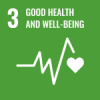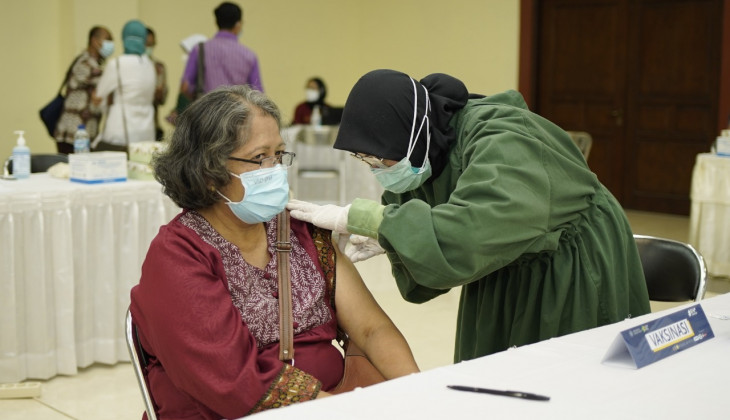Since the government announced the Covid-19 vaccination in Indonesia, the public has faced various dilemmas in the implementation of this policy. According to community activities on social media, several groups rejected the Covid-19 vaccine. 49.9 percent of the total 601 respondents refused to be the recipients of the first Covid-19 vaccine.
This is a study conducted by the Center for Digital Society (CfDS) Fisipol UGM initiated by Amelinda Pandu Kusumaningtyas, Iradat Wirid and several CfDS senior researchers. The research seeks to further examine the relationship between public perceptions on Covid-19 and the sources of information on the media.
From the CfDS survey conducted in February 2021 based on education level and perceptions of the Covid-19 vaccine, most highly educated Indonesians (diploma-S3) consider the Covid-19 vaccine important, both for themselves and their families. Meanwhile, the types or brands of vaccines most commonly referred to were Sinovac (41.8 percent), Pzifer, and Biofarma.
“The public thinks vaccines should be mandatory, regardless of whether they are free or not. However, almost 40 percent of the public do not agree with the mandatory policy for the Covid-19 vaccine, most of whom are highly educated people. This has an immediate impact on the negative perception of society which reduces their willingness to receive vaccines,” said Amelinda Pandu Kusumaningtyas, a CfDS researcher on Wednesday (24/3) during a press conference via Google Meets.
Amelinda said the results of the CfDS research showed that most Indonesians who use digital services access Covid-19 information on social media, and 81.5 percent of them still consume various forms of posts containing conspiracy theories. According to her, most people still believe in the global elite conspiracy theory which states that the Covid-19 vaccine is made to benefit pharmaceutical corporations or insert microchips in the human body.
“Not to mention that there are Indonesian people who still believe in hoax information that an anti-Covid-19 necklace can heal a patient,” she said.
In her research, Amelinda emphasized that social media information is very influential on the opinion of Indonesians. Regardless of their background, there are still people who are exposed to the swirl of fake news or conspiracy theories circulating on social media.
In research related to the analysis of social media texts, the spread of hoaxes, and conspiracies on Covid-19, CfDS also carried out in-depth analysis by utilizing data from tweets and posts on various social media platforms. Iradat Wirid said that data collection from March 2020-February 2021 showed more than 18,400 posts on Twitter contained “Reject Vaccines” or “Anti-Vaccines”.
Along with these public posts, Iradat said, more than 1,000 tweets are against the rejection of the Covid-19 Sinovac vaccine. Meanwhile, more than 4,000 tweets contain the words ‘PDIP’, ‘people’, ‘PKI’, and ‘Government’ to reject a post made by DPR member Ribka Tjiptaning who does not support the Covid-19 vaccine.
“Similar to the Youtube video sharing platform, there are 11 top videos that discuss Ribka Tjiptaning’s rejection, with more than 13 million views and 62,000 comments,” Iradat said.
Unlike Twitter, said Iradat, the Youtube comment section in the video contains more support for DPR member Ribka Tjiptaning for rejecting the Covid-19 vaccine. Meanwhile, on Instagram, various accounts display videos or photos with conspiracy discourses. “One of them is ‘Moderna MRNA injection is an operating system designed to program humans and hack their biological functions.’ Another is ‘What should we do after refusing a vaccine?'”
Iradat added that audio and visual-based platforms (Instagram and Youtube) are mostly used to build discourses on the rejection of the Covid-19 vaccine, and netizens will also comment in line with the contents. Therefore, based on the survey and in-depth analysis conducted by CfDS, social media information on various platforms affects the views of the public/netizens.
“This influence shapes people’s perception of participating in the government’s Covid-19 vaccination program,” Iradat explained.
Source: https://ugm.ac.id/id/berita/20906-membaca-persepsi-masyarakat-terhadap-vaksin-covid-19



